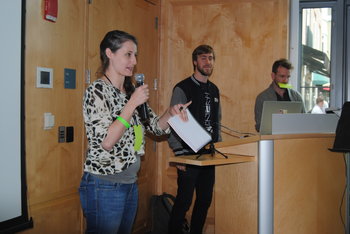
Constructive Criticism
Constructive criticism offers a positive route to improvement as opposed to simply stating a problem. Alternatively, the term constructive criticism is often used to denote statement of a problem that is wrapped in a compliment as a means of softening communication.Your presentation would have been better if you varied your voice and rhythm a bit.
---
Your presentation was great and I really enjoyed the part about energy consumption. The one area I thought you could improve was your voice and rhythm. For example, vary your intonation a little to keep the audience engaged.
---
Your presentation was great and I really enjoyed the part about energy consumption. The one area I thought you could improve was your voice and rhythm. For example, vary your intonation a little to keep the audience engaged.
Condescending Criticism
Constructive criticism is a well known technique such that people know when you're doing it. This can be perceived as condescending or sarcastic if the positive component of your criticism is insincere.I really like your shoes but those pants don't suit your build.
Constructive Attitude
The term constructive attitude is commonly used used to describe the character of a person. This indicates that an individual looks to build things as opposed to acting as a passive critic. For example, an employee who is regularly fixing problems at work as opposed to pointing them out.Win-win Thinking
Win-win thinking is the belief that change can be completely positive. For example, the belief that the economy can grow by solving environmental problems. Win-win thinking tends to be constructive in that it usually involves building things up.Win-win Negotiation
Win-win negotiation is the process of seeking an agreement that benefits all sides. For example, a divorce agreement that prioritizes the well-being of a couple's children above all other concerns. This can be contrasted with win-lose negotiation whereby you try to "defeat" the other side.Heliotropic Effect
The heliotropic effect is the observation that people tend to work towards the most positive vision of themselves. This calls for a constructive approach to people whereby you help them to build up a compelling vision of themselves.Constructive Leadership
An approach to leadership whereby you support people and their initiatives of change. This can be contrasted with the surprisingly common leadership style of attempting to keep talented people down and to resist change.Constructive Strategy
Strategies are constructive where they involve designing, building and generating value. For example, launching a new product. A common counterexample is rent seeking whereby a strategy seeks a greater share of value without creating any value.Creative Destruction
It is possible for a constructive strategy to involve some level of destruction. For example, a green energy company that seeks to destroy old polluting industries by outcompeting them.Constructive vs Optimistic
Optimism and a constructive attitude aren't the same thing. For example, you may be optimistic that tearing things down will make things better. Optimism is an embrace of risk with the view that fortune favors the brave. A constructive attitude indicates that someone is a builder. A constructive person isn't necessarily optimistic, they simply want to build things and create value.| Overview: Constructive | ||
Type | ||
Definition | The process of building up as opposed to tearing down. | |
Related Concepts | ||



























